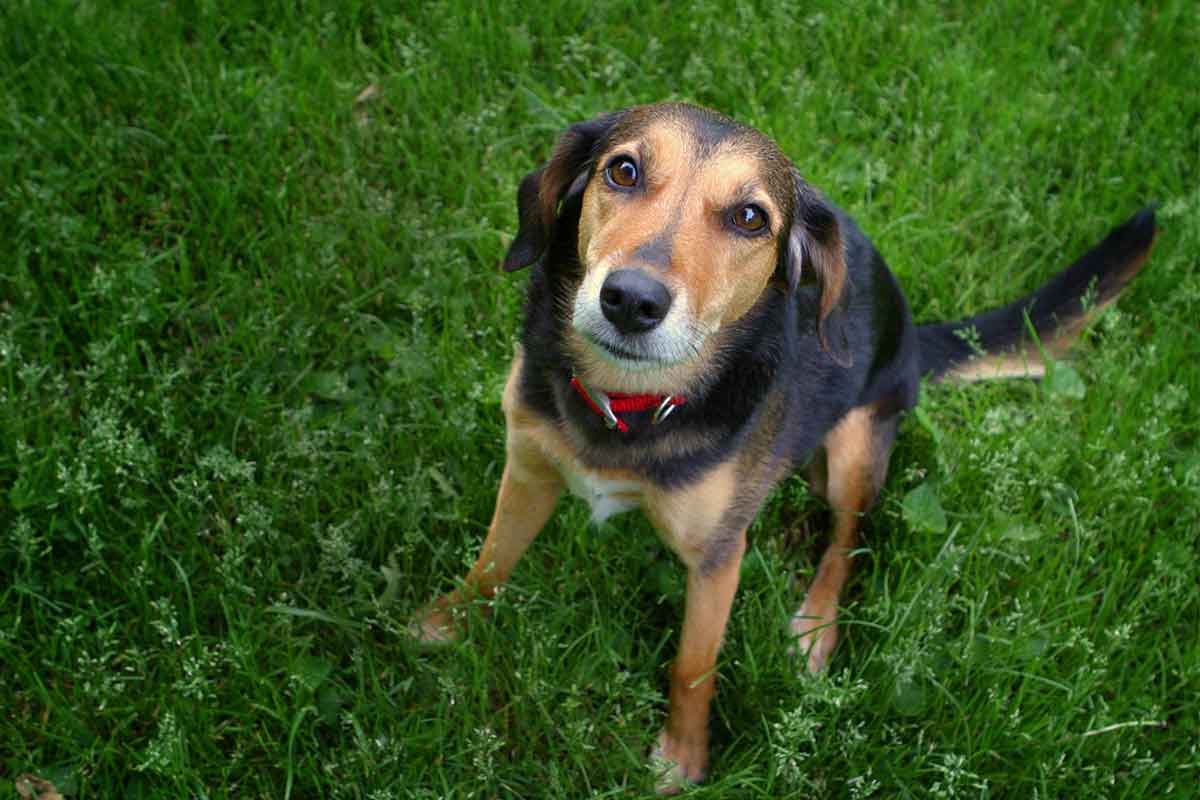Does your dog whine, wiggle, and wet whenever you come home? That could be excitement related or even fear related to your homecomings. Of course, you don’t want your dog to be scared, but the wet floor ratchets up your stress levels, too.
What does it mean, and what’s a caring pet parent to do?
Why Dogs Whine, Wiggle, and Wet When You Come Home
Not all wetting has to do with housetraining. Dogs use urine to communicate in a variety of ways, and wetting at homecomings has a very specific meaning. Urinating in your presence, especially with wiggly wagging body language can indicate the dog is excited and happy to see you, but crouching and cowering body language, means, fear and/or appeasement.
Yep, fear and/or appeasement are the ultimate signal used to prevent aggression from escalating. They can be considered a backhanded compliment, because your dog wants to see you but is trying not to upset you by squatting and peeing.
Puppies usually outgrow the behavior, but some very fearful dogs continue as adults. The dog typically throws himself at your feet, wiggles and averts his eyes, squats and wets. Sometimes he turns into a C-shape or onto his back before wetting. The behavior commonly happens during greetings when you return after an absence.
Angry reactions make it worse. Yelling, shaming, touching, or even making eye contact tells the dog you are upset, and that makes him pee even more. You can teach him better control and more confidence so he doesn’t feel the urge to wet.
How to Curb Fear and/or Appeasement Wetting
- Ignore the behavior, and clean up the mess without making eye contact or saying a word.
- When homecomings triggerwetting, ignore the dog for the first ten minutes after you’ve walked in the door. Turn your back and walk away to give him time to calm down and gain control. Avoid paying attention to any of the dogs in the home if they’re nearby, or your tone of voice will influence wetting emotions.
- Instead of head pats, gently scratch his chest or beneath his chin once he’s calmed down.
- Speak in a gentle voice. Men can unintentionally sound gruff and scaryto the dog, so practice expressing your inner softie nature.
- Don’t be emotional. Avoid babytalk, which can excite and encourage the dog to continue peeing.
- When greeting the dog, avoid “looming” over the top of him. Instead, give the dog space in order to prevent yourself from appearing confrontational.
- Have the dog sit, and gently praiseand offer food or toy rewards. Offer treats for calmly sitting with the majority of social interactions.
This article was reviewed/edited by board-certified veterinary behaviorist Dr. Kenneth Martin and/or veterinary technician specialist in behavior Debbie Martin, LVT.








